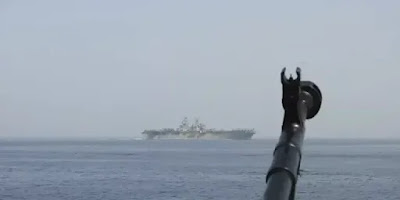Filenews 23 June 2025
Iran's threat to blockade the Strait of Hormuz is causing international concern about global energy security, as the waterway is one of the most strategic in the world. They are located between Iran and Oman and connect the Persian Gulf with the Gulf of Oman and the Arabian Sea. The alleys are only 33 km wide. at their narrowest point, with the navigable passage for large ships being limited to 3 km.
Their importance is enormous, since about 20% of the world's daily oil consumption passes through it — about 18 to 21 million barrels per day — with the OPEC countries (Saudi Arabia, Iraq, Iran, the United Arab Emirates, Kuwait) exporting most of their production to Asia.
How trade is affected if the Straits are closed
If Iran implements its threat to blockade the Straits, it will radically disrupt the global energy supply chain. The biggest loser will be Iran itself, which exports its oil via the same route, but other countries — especially China, which supplies 90 percent of Iranian exports — will also be severely affected.
In addition, record increases in crude oil prices are expected. After the recent US attacks on Iranian nuclear facilities, the price of Brent momentarily exceeded $80 a barrel for the first time since January, while analysts at Tortoise Capital estimate that it could even reach $100 if navigation is blocked.
The international reactions
Washington is pressuring China to exert its influence on Iran so that it does not carry out the threat. U.S. Secretary of State Marco Rubio said closing the Straits would be "economic suicide for Iran," while the U.S. Navy maintains a permanent presence in the Persian Gulf to protect shipping.
Goldman Sachs warns that if oil flow from the Strait of Hormuz is halved for a month and remains reduced for the rest of the year, Brent prices could rise as high as $110 before stabilizing at around $95 a barrel in late 2024.
The focus is on global balances
The crisis in the Strait of Hormuz can cause chain reactions in economies and markets worldwide, from Asia to Europe and the Americas. The region remains a hotbed of geostrategic tension, while the possibility of military escalation between Iran and the West is again on the table.
https://www.youtube.com/shorts/xZOeZ7IKsqk
